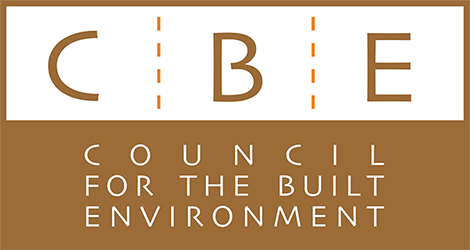Skills
The CBE Maths and Science support programme aims to enable school learners from disadvantaged communities to obtain better grades in these subjects in order to attract them into built environment professions and associated Science, Technology, Engineering and Mathematics careers.
CBE executes this through partnerships with credible service providers, capable of delivering improved Maths and Science results in rural areas. The project is implemented in the provinces. Working with the relevant provincial department of education Grade 12 learners, who can potentially benefit from the programme, are identified. Learners attend weekend classes in Maths and Science, and are also exposed to the world of work and career expos during winter school. Their quarterly exam results are used to track their progress and influence of the programme.
For further information please contact:
Mr. Joseph Komane
Acting Manager: Skills Development
Tel: +27 12 346 3985
Email: joseph@cbe.org.za / info@cbe.org.za
INTERNSHIP
An intern is an undergraduate from a University of Technology, who requires workplace training to complete his/her academic qualifications. The aim of this project is to collaborate with Universities of Technology to place students with employers for the completion of workplace experience component (i.e. Practical 1 and 2) towards the fulfillment of their diploma qualifications. This work-integrated experience prepares the intern for the culture of the work place. The CBE also monitors and evaluates the workplace training of these interns.
CANDIDACY
A candidate is graduate who requires workplace training to enable him/her to register as a fully-fledged BE professional with the council of the profession concerned. This project aims to ensure that BE candidates achieve maximum professional development and strive towards their professional registration in the shortest possible time by:
- Conducting workplace assessments and accreditation;
- Drawing up a generic training plan for the profession, in alignment with the CBEP competency profile;
- Drawing a detailed training plan for each candidate; and
- Assisting mentors to conduct a formative assessment of each outcome, according to the South African Qualifications Authority’s (SAQA’s) requirements.
Throughout the programme, candidates are alerted to the benefits of professional registration with council of their relevant profession.
Interns are placed with host workplace training employers with the aim of exposing them to the culture of the workplace.
For further information please contact:
Mr Joseph Komane
Skills Development Practitioner
Tel: +27 12 346 3985 / 087 980 5009
Fax: +27 12 346 3986
Email: joseph@cbe.org.za / keabetswe@cbe.org.za / info@cbe.org.za
LEARNERS, STUDENTS, AND YOUNG PEOPLE INTERESTED IN THE BUILT ENVIRONMENT CAREERS!
When you can’t AFFORD to fund your tertiary education, and don’t know WHERE to start…. This is your “one-stop shop” for careers and bursaries in the Built Environment!
Click here to download the companies offering bursaries in the built environment
Click here to enrol on the CBE database
Click here to download the Busary Opportunities 2018 – KwaZulu-Natal Government and Click here to download the Application Form (1 November – 30 November 2018)
WHAT IS ACCREDITATION?
Programme accreditation forms an important component of increasing university throughput of built environment graduates who have the relevant knowledge base to practice in the South African BE. The intentions behind accrediting institutions of learning and BE courses of study:
- The offerings are of high standards
- The offerings are relevant to the needs of South African built environment
- The offerings keep with changes both nationally and internationally
The councils for the professions are empowered by their respective Acts to accredit BE academic programmes and institutions. The CBE exercises an oversight role, derived from the CBE Act, to ensure that the BE academic programmes at tertiary institutions (traditionally Universities and Universities of Technology) meet the quality assurance requirements of the Council for Higher Education (CHE). It has thus developed a BE accreditation oversight framework programme, based on the CHE’s 19 Accreditation Criteria principles, to be implemented by the councils for the professions during accreditation.
The public is advised to check on the accreditation status of the course/institution before enrollment.

